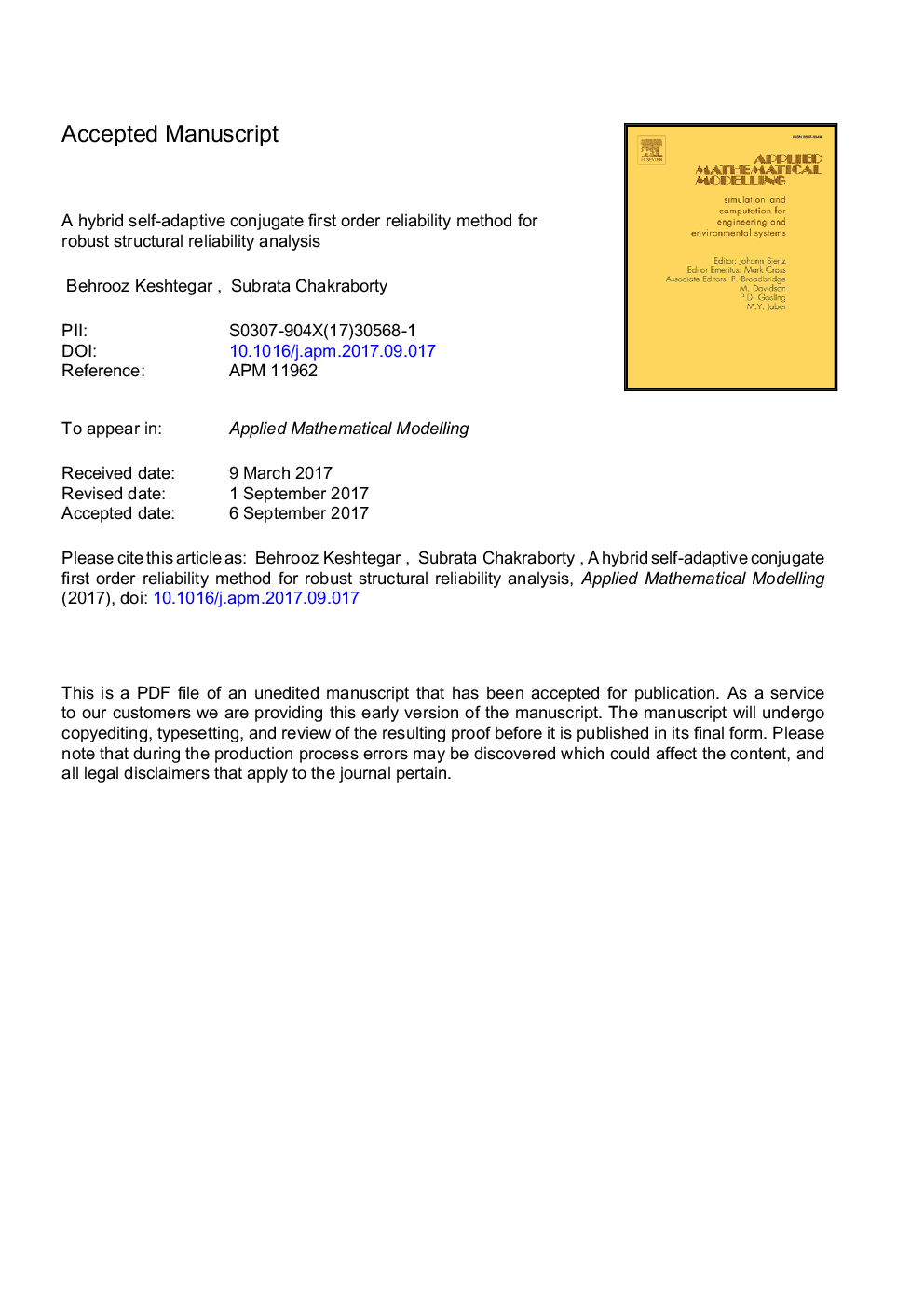ترجمه فارسی عنوان مقاله
یک روش اعتبارسنجی برای اولین بار از روش همجوشی سازگاری ترکیبی برای تحلیل پایایی ساختاری قوی استفاده شده است
عنوان انگلیسی
A hybrid self-adaptive conjugate first order reliability method for robust structural reliability analysis
| کد مقاله | سال انتشار | تعداد صفحات مقاله انگلیسی |
|---|---|---|
| 140274 | 2018 | 36 صفحه PDF |
منبع

Publisher : Elsevier - Science Direct (الزویر - ساینس دایرکت)
Journal : Applied Mathematical Modelling, Volume 53, January 2018, Pages 319-332
ترجمه کلمات کلیدی
تحلیل قابلیت اطمینان، روش اعتبار اولویت، جهت جستجوی کنجکاو، روش همگرا سازگار، روش ترکیبی خودآموزی،
کلمات کلیدی انگلیسی
Reliability analysis; First-order reliability method; Conjugate search direction; Self-adaptive conjugate method; Hybrid self-adaptive conjugate method;

